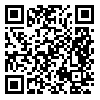Articles accepted at the time of publication
Back to the articles list |
Back to browse issues page
Department of English Translation Studies, Persian Literature and Foreign Languages Faculty, Allameh Tabataba’i University, Tehran, Iran , m.bolouri76@gmail.com
Abstract: (2118 Views)
Translated literature almost always involves a degree of manipulation of the source text for a certain purpose. Such manipulations are imposed by the ‘patrons’ who try to regulate the relationship between the literary system and the other systems a society is composed of. Working on this fundamental broadly-acknowledged assumption about translation, the present study aimed at identifying the concepts which are often manipulated in translated literature published in contemporary Iran. It also attempted to spot the manipulative strategies imposed on translations and the counter-manipulative strategies adopted by translators to sidestep those manipulations. Drawing on the findings of the the so-called ‘Manipulation School’ and Dukāte’s typology of manipulation strategies, it did a comparative analysis of the source texts and translated versions of four American novels recently published in Iran. The codification of the data revealed the frowned upon taboo concepts to be descriptions of, or references to, sexual activity, physical contact between the sexes, human body, extramarital relationships, swear words, prostitution, nudity, homoeroticism, alcoholic drinks and dancing. The most frequent manipulation strategies were 1) deletion of the taboo concepts, 2) substitution of the concepts with totally different concepts, and 3) attenuation of the forbidden words, that is to say, expressing them in a more polite, softer language. Although the manipulation mechanism is most effectively in place, the translators seemed to have occasionally applied creative strategies to evade the imposed manipulations. Such counter-manipulative strategies were classified as legitimization, archaism, use of less familiar words, degenderalization, denunciation and borrowing in this study.
Article Type: Research article |
Subject:
Sociology of language
Send email to the article author
| Rights and permissions | |
 |
This work is licensed under a Creative Commons Attribution-NonCommercial 4.0 International License. |



